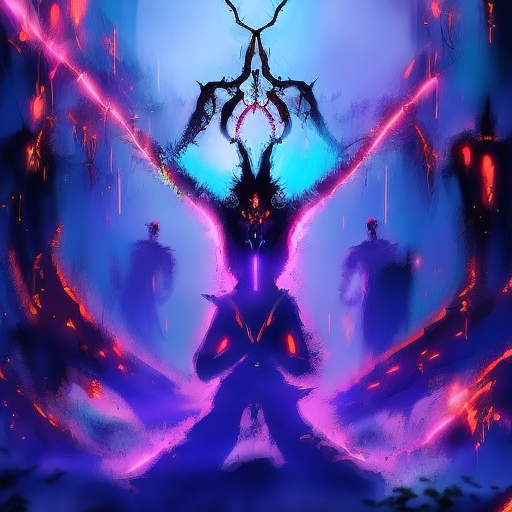Summary:
In “Demons,” author Fyodor Dostoevsky explores the destructive power of radical ideologies and the consequences they have on society. Set in 19th-century Russia, the novel delves into the lives of various characters who become entangled in a political conspiracy that leads to chaos, violence, and moral decay. Through a gripping narrative, Dostoevsky examines the nature of evil, the complexities of human psychology, and the dangers of unchecked fanaticism.
The Rise of Radicalism:
The novel begins with the arrival of a charismatic figure named Pyotr Verkhovensky in the provincial town of Skotoprigonyevsk. Verkhovensky, a self-proclaimed revolutionary, seeks to incite a revolution against the existing social order. He gathers a group of followers, including the disenchanted intellectual Stepan Trofimovich and the nihilistic Kirillov, who believes in the power of his own will to transcend morality.
As Verkhovensky’s influence grows, the town becomes a breeding ground for radical ideas and political unrest. The characters’ lives intertwine as they grapple with their own beliefs and desires, ultimately leading to a violent climax that exposes the destructive nature of their ideologies.
The Battle of Ideologies:
Throughout the novel, Dostoevsky presents a clash of ideologies, highlighting the dangers of extremism and the consequences of abandoning moral principles. The characters embody different philosophical positions, each driven by their own motivations and beliefs.
Stepan Trofimovich represents the old intellectual class, torn between his desire for social change and his fear of the radicalism he helped foster. His wavering convictions and inability to take decisive action symbolize the moral confusion of his generation.
On the other hand, Kirillov embodies the nihilistic belief in the absence of inherent meaning or values. He grapples with the idea of committing suicide to prove his freedom from societal constraints, ultimately succumbing to the destructive power of his own ideology.
The Nature of Evil:
Central to “Demons” is the exploration of evil and its manifestation in human behavior. Dostoevsky delves into the depths of the human psyche, exposing the dark impulses that drive individuals to commit heinous acts.
One of the most striking examples is the character of Nikolai Stavrogin, a complex and enigmatic figure tormented by his own inner demons. Stavrogin’s moral corruption and his involvement in a scandalous affair reveal the destructive power of unchecked desires and the consequences of succumbing to one’s basest instincts.
In the midst of the chaos and moral decay, Dostoevsky also presents moments of redemption and moral awakening. The character of Shatov, initially drawn to radical ideas, undergoes a transformation and ultimately rejects the destructive ideology he once embraced.
Key Takeaways:
- The novel explores the destructive power of radical ideologies and the consequences they have on society.
- Dostoevsky highlights the clash of ideologies and the dangers of extremism.
- The book delves into the nature of evil and the complexities of human psychology.
- It serves as a cautionary tale about the dangers of abandoning moral principles.
- The characters’ moral struggles and moments of redemption provide insight into the human condition.
“Man is a mystery: if you spend your entire life trying to puzzle it out, then do not say that you have wasted your time. I occupy myself with this mystery, because I want to be a man.”
– Fyodor Dostoevsky, Demons
In “Demons,” Dostoevsky masterfully dissects the destructive power of radical ideologies, examining the consequences they have on individuals and society as a whole. Through complex characters and a gripping narrative, the novel serves as a cautionary tale about the dangers of unchecked fanaticism and the importance of moral principles. Ultimately, it reminds us of the inherent complexities of the human condition and the eternal struggle to understand ourselves.












